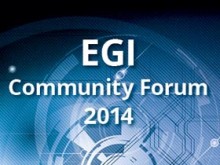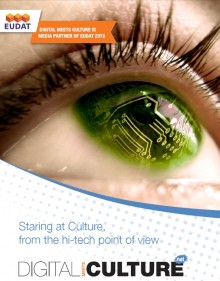Login Status
-
Free text
UPCOMING EVENTS:
 From August 18 to October 11, 2026; submissions due February 19.
From August 18 to October 11, 2026; submissions due February 19.FILE – Electronic Language International Festival is now accepting project submissions and invites artists, researchers, creators, and developers to participate in its next edition. An international reference in the fields of art, technology, and innovation, FILE will take place in … Continue reading →
 Wrocław University of Environmental and Life Sciences, 4th of Match 2026
Wrocław University of Environmental and Life Sciences, 4th of Match 2026The international conference “Cross-border cooperation in the era of challenges and transformation – space, energy, climate, culture” will be held on 4 March 2026 at the Wrocław University of Environmental and Life Sciences, in Wrocław, Poland. The conference will explore key issues facing border regions, from … Continue reading →
Tag: big data

The networking session organised by PREFORMA will present to the whole digital preservation community – open source community, developers, standardization bodies and memory institutions – the new opportunities offered by the pre-commercial-procurement launched by the project. Continue reading

The EUDAT 2nd conference held on 28-30 Oct 2013 in Rome, was the ideal setting to showcase these services and outline the roll out phase as well as to offer hands-on training. Discussions on the new set of EUDAT services were also a feature of the conference with semantic annotation, dynamic data & workflows addressed, a natural follow on to the Working Group discussions that were held in Barcelona in Sept. 2013. Continue reading

For the Internet Festival, closed on 13th October, Incubator was the keyword for 2013. The organizers have already published the first official data of the event: 60 countries directly or virtually represented; more than 23.000 devices connected (smartphones, pc, tablets); … Continue reading

A flexible and dynamic ecosystem, providing integrated services through interoperable infrastructures. It should be open and accessible, and continuously adapting to the changing requirements of research and to new technological opportunities. Continue reading
































